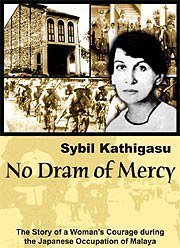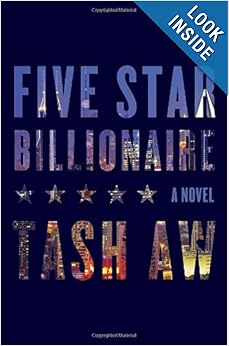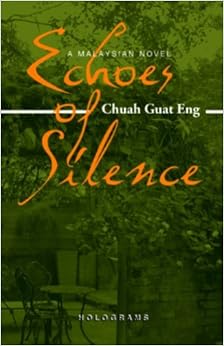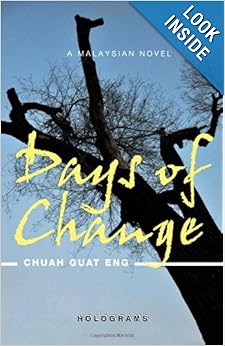
SYBIL KATHIGASU: We know little of local heroes
JUNE 12 was exactly 65 years since Sybil Kathigasu, the freedom fighter, died. In the book, No Dram of Mercy (2006), a memoir of Sybil's memoirs, the author gave an account of a woman (Sybil Kathigasu) of great courage, who should be regarded as a beacon and role model to all Malaysians.
Between the late 1920s and early 1940s, Sybil and her husband, Dr Abdon Clement Kathigasu, operated a clinic in Brewster Road, now known as Jalan Sultan Idris Shah, in Ipoh.
Sybil's warmth, readiness to help and fluency in Cantonese made her popular with the Chinese.
In 1941, the Japanese army bombed Ipoh, forcing Sybil and her family to move to Papan, a town near Ipoh.
It was here that Sybil ran a free clinic, dispensing medicine to locals and fighters of the Malayan People's Anti-Japanese Army.
She kept a radio so she could listen to the British Broadcasting Corporation for news and pass on information.
When the Japanese army knew about her subversive activities, she was arrested and tortured. Her fingers were ripped off with pliers and her legs scalded with iron rods.
She was forced to drink large quantities of water before the Japanese military police stepped on her bloated stomach. She suffered damage to the spine and skull after being beaten by bamboo stick.
After Malaya's liberation from the Japanese in 1945, Sybil was flown to England for medical treatment. In 1948, she became the only Malayan woman to receive the George Medal for Gallantry, a high civilian honour given by King George VI.
Several months later, she died from an old wound at the jaw, sustained from the kick of a Japanese boot that had brought on a fatal bout of septicaemia. Her body was buried at St Michael's Church in Ipoh.
Sybil's life is perhaps the best example of unity: a Penangite of Eurasian descent who sacrificed her life for the Malayan People's Anti-Japanese Army.
In Fair Park, Ipoh, a road is named after her to commemorate her bravery, but the sad truth is, she has never been mentioned in any Malaysian history book.
Our education system places little emphasis on this subject.
Little is known to schoolchildren about heroes like Sgt Hassan, Lieutenant Adnan, Iban hero Kanang and Sybil. Can the Education Ministry include chapters on local fighters, like Sybil, in history books?
Source:
http://www.nst.com.my/opinion/letters-to-the-editor/sybil-kathigasu-we-know-little-of-local-heroes-1.316934
Her book, an autobiography

NO DRAM OF MERCY
By Sybil Kathigasu
I WONDER how many
people of my generation (I’m 39), or the next, know of Sybil Kathigasu? I
certainly don’t recall learning about her in school or from my peers. Older
relatives, in their re-telling of wartime suffering, did not mention her name.
Had I not picked up a
reprint of her memoirs entitled No Dram of Mercy, I’d probably remain ignorant
of Kathigasu, recipient of the George Medal, “the highest British civilian
award for bravery”.
Kathigasu was
unabashedly pro-British (a sample: “I reminded the guard of what Malaya owed to
Britain, and of the amount of talent, labour, money and material which had gone
to make Malaya the happiest and most advanced country in the East.”), but this
Eurasian lady also had pride as a Malayan and did the utmost to assist her
fellow nationals, particularly in the town of Papan, Perak.
Against the backdrop
of the Japanese invasion and occupation of Malaya, Kathigasu, whose husband was
a doctor, provided medical aid to the civilian population of all races, and to members
of the Malayan People’s Anti-Japanese Army (MPAJA).
Her tenacious
character is first revealed in her refusal to join the British withdrawal to
Singapore. Then there’s her persistence in tuning in to radios (instead of
turning them in) for news from the free world. Her perilous aid to MPAJA
guerrillas finally led to her betrayal and incarceration by the dreaded
Kempetei (Japanese secret police).
In No Dram, the author
does not wallow in self-pity, choosing not to dwell on personal suffering but telling
of beatings and torture in an almost matter-of-fact way:
“The places on which
the blows were concentrated were those containing no vital nerve or organ so
that no permanent injury resulted to the victim ? these parts of my body were
soon solid bruises.”
That which apparently
mattered more to her was the well being of her loved ones, including her
five-year old child, Dawn, who was strung up a tree and threatened with
immolation by Kathigasu’s sadistic interrogator, Sergeant Yoshimura.
Kathigasu’s
selflessness can best be summed up in her own words: “The thought (of death)
did not disturb me ? and I had the consolation of knowing that my family would
be safe, and that I had successfully resisted all attempts to wring from me
information about the guerrillas and their contacts.”
Her sudden demise not
long after liberation casts a shadow on her otherwise triumphant story, and,
unfortunately, we learn not of the fate of several important characters in her
book.
These include Moru,
her link with the guerrillas; Chen Yen of the MPAJA; and Dr A.C. Kathigasu, her
husband.
With so little in
evidence today of Sybil Kathigasu’s grit and sacrifice, No Dram of Mercy serves
as reminder (or introduction, for those of my generation, perhaps) of a woman who
survived terrible odds with only her unwavering faith in justice and in God,
and of a time when Malayans of all races persevered in the face of
adversity.












